Relations between Azerbaijan and Malaysia are developing on an upward trend. The foundation of diplomatic relations between the two countries was laid on April 5, 1993. In 1997, a working group on Azerbaijan-Malaysia inter-parliamentary relations was established. Today, there is active cooperation between the two countries in the fields of economy, trade, education, energy, and technology.
Ambassador of Malaysia to Azerbaijan, Ambassador Ahmad Kamrizamil Mohd Riza, answered questions about existing cooperation and planned joint projects in an interview with Report:
- Dear Ambassador, you recently started your activities in Azerbaijan. Have you had the opportunity to visit the regions? We would like to know your impressions about Azerbaijan in general.
- Azerbaijan is a beautiful and safe country. The capital, Baku, is impressive, with its iconic buildings and ancient city structure. I feel at home because Azerbaijan is a Muslim-majority country like Malaysia, where the culture and vibes are almost similar. I have had the most outstanding gastronomic experience here. The Azerbaijani cuisine is vibrant, with its fresh vegetables and produce and the excellent taste of meat and poultry. Undoubtedly, the lamb here is among the best I have ever tasted. In general, Azerbaijan is a unique country that combines modern and historical elements. Most importantly, people are friendly; you will see people greeting you with a smile and excellent hospitality wherever you go.
I have the privilege of exploring this beautiful country. I have been to the Gusar region, where I adored the beauty of Shahdag Mountain Resort and enjoyed stopping by the cities located between the routes. I am planning to visit other regions, such as the historical towns of Ganja, Shamakhi, and Shaki, the breath-taking scenery of beautiful mountains, forests, and greenery in Guba, Gabala, and Astara, and the precious UNESCO heritage sites all around the country. When time permits, I also look forward to visiting the liberated regions, especially Shusha, Aghdam, and Fuzuli, to see the beautiful land.
- What changes did you plan regarding the embassy's activities to improve bilateral relations? Which areas are considered priority within the framework of cooperation?
- During the audience with President Ilham Aliyev, I highlighted that although relations between Malaysia and Azerbaijan are cordial, they must be upgraded to strategic and comprehensive ones that could further benefit both countries. I am taking a proactive approach to bolstering bilateral relations and cooperation between Malaysia and Azerbaijan. I am currently working closely with my Azerbaijani counterparts, foreign diplomats, and all relevant stakeholders on areas of mutual interest and benefit, particularly the key priority areas, including trade and economy, education, culture, tourism, youth and sports, etc., which would strengthen friendly relations between the countries. I am exploring non-traditional sectors with great potential in Azerbaijan, such as the halal industry, Islamic banking and microfinance, renewable energy, ICT platforms, and defense equipment/procurements. I would also like to explore nano and vaccine technology in Azerbaijan, and the opportunities for these Malaysian know-hows to penetrate the Azerbaijan market.
Ministers, government officials, and business circles must make high-level visits to elevate people-to-people ties and relations between Malaysia and Azerbaijan. Other priorities also include finalizing several pending MoUs, mainly bilateral consultations, an MoU on higher education, and a free visa agreement for Malaysians to visit Azerbaijan.
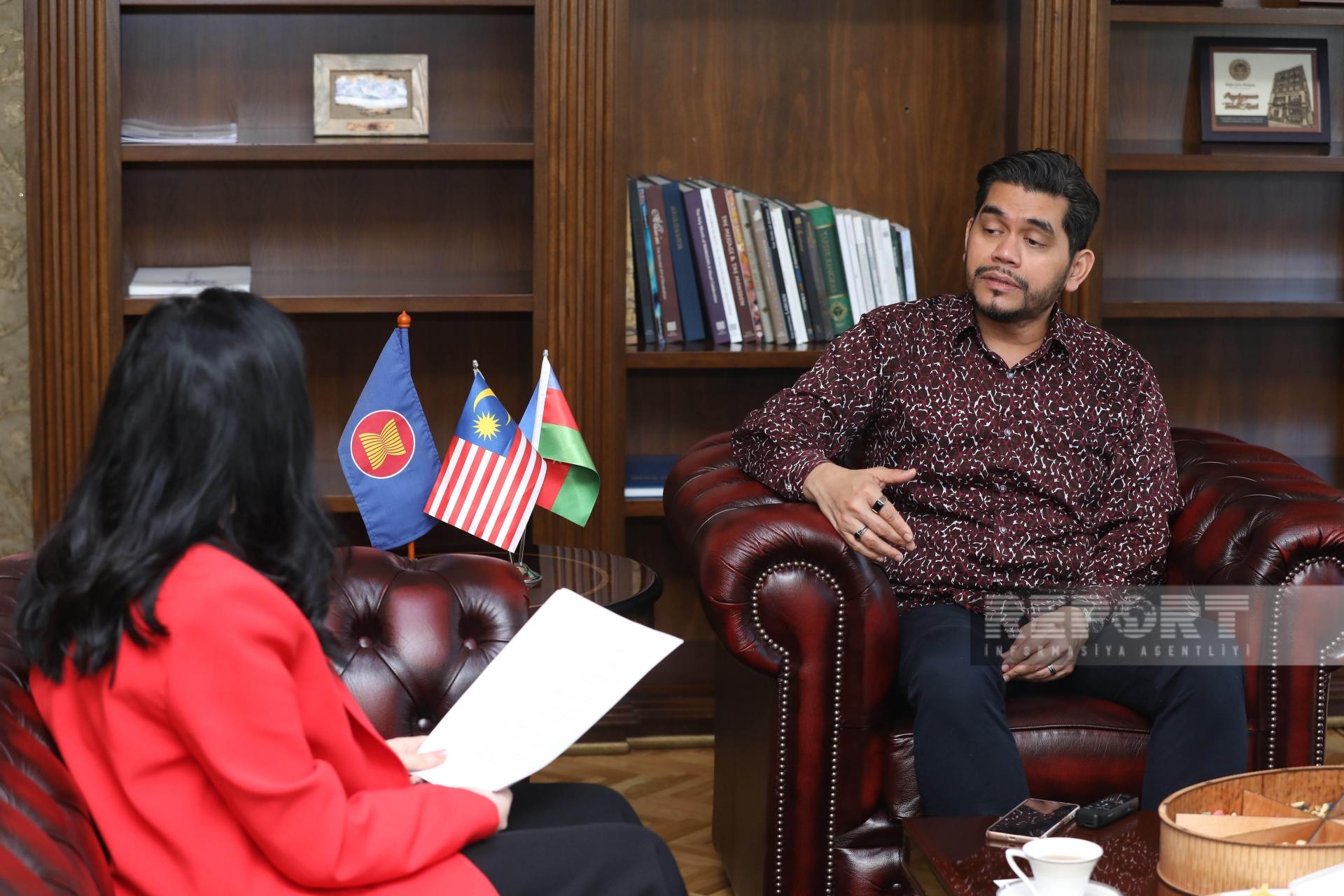
- Considering Malaysia's leading position in the field of high technologies, what can be its contribution and support to Azerbaijan?
- Malaysia is one of the fastest-growing countries in the Southeast Asian region. One of the most developing areas is high technology. Malaysia's strategic location in Southeast Asia makes it an attractive destination for high techbnologies to access the growing markets in the Asia-Pacific region. Its proximity to major markets like China, Japan, and South Korea is advantageous. Malaysia could be the hub to facilitate logistics and distribution, reducing transportation costs and lead times.
Since 20 years ago, many sectors in Malaysia have already shown great interest in high and digital technology. Large investments have also been made in digitising the financial services sector, including Islamic finance and banking. Foreign companies are continuously looking at Malaysia because of the various incentives offered, especially the customised tax incentives and the supporting role played by our agencies like the Malaysia Investment Development Authority, or MIDA. They are very comfortable with our One Stop Centre and the ease of doing business with agencies like MIDA. At the same time, the Immigration Department provides the necessary support, as does the English-speaking population.
Malaysia has invested in education and training programs to develop a skilled workforce tailored to the semiconductor industry's needs. Many universities and technical institutes offer specialised courses in electronics, engineering, and related fields, providing semiconductor companies with a pool of qualified personnel. Azerbaijani students should take this opportunity to pursue higher education in those fields in Malaysia. For knowledge sharing and expertise, many courses are available on high technologies under the ambit of the Malaysian Technical Cooperation Program (MTCP) for foreign countries, including Azerbaijan, such as High Technologies, Artificial Intelligence, the Internet of Things (IoT), the fourth Industrial Revolution, Digital Security, Islamic Finance, and Sustainability (Isustain). We would be glad to receive more participation from Azerbaijan.
With the diversification of Azerbaijan's economy, Malaysia is very interested in exploring this resource-rich nation's dynamic and appealing economic landscape. There is enormous potential for Malaysia to explore and broaden the scope and dimension of non-oil sectors, including information technology and multimedia, in Azerbaijan. Even Islamic banking, where Malaysia is among the pioneers, has huge potential in this country.
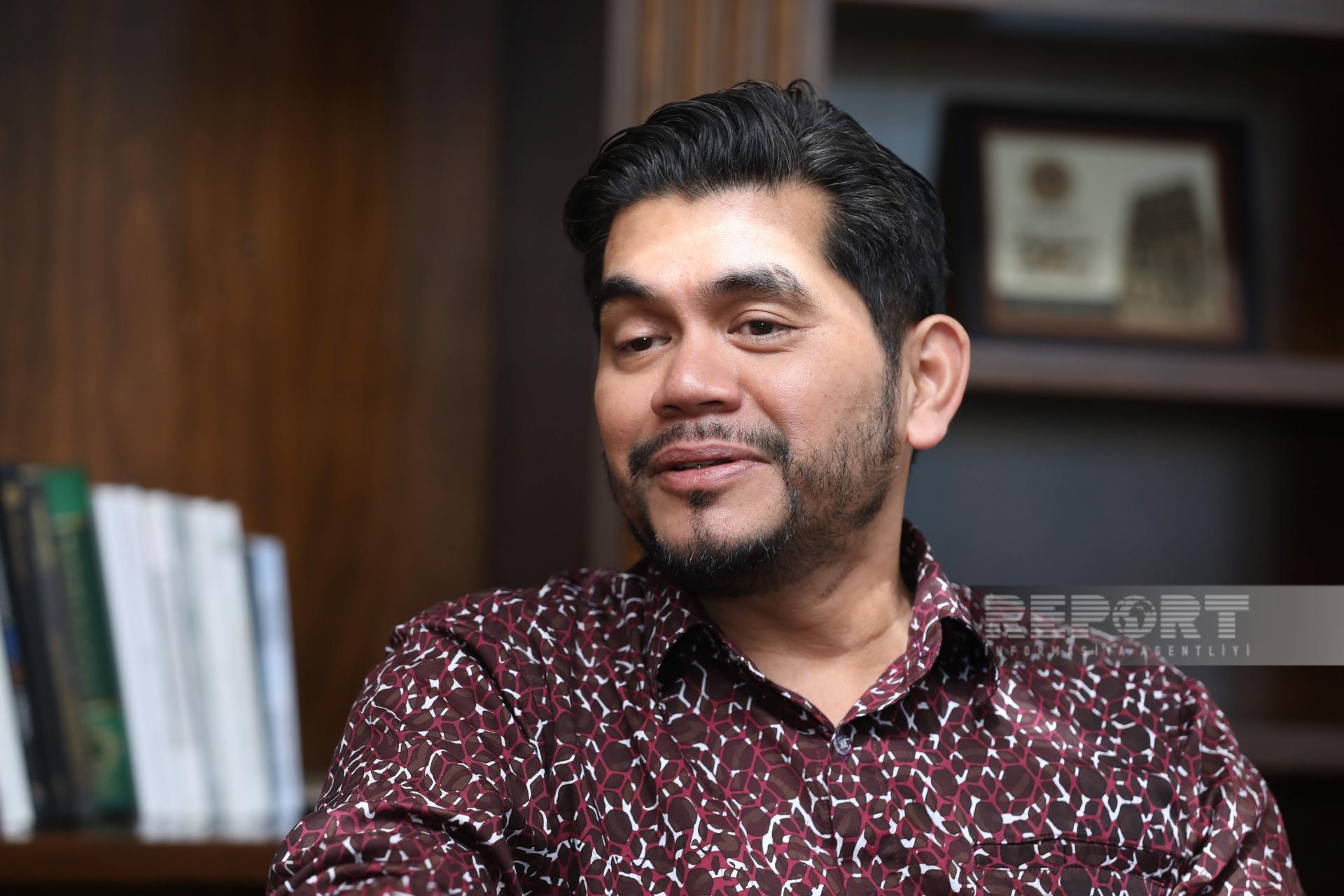
- Mr. Ambassador, it is known that Petronas, the national oil company of Malaysia, participated in the development of the Shah Deniz field in Azerbaijan, but later left the project. Considering Azerbaijan's hosting of COP29 and its decisive steps towards "green energy", does it also seem possible to move energy cooperation with Malaysia to a different direction?
- First, I would like to congratulate the government of Azerbaijan for being chosen to host COP29 this November. We look forward to working together to continue building momentum on climate action. As I said, Malaysia-Azerbaijan bilateral relations need to move forward in traditional and non-traditional areas such as renewable energy. Our economic and political ties are robust and growing. With the 30-year war with Armenia now over, I am currently encouraging more Malaysian businesses to be involved in the dynamic economic sector in Azerbaijan. With the diversification of Azerbaijan's economy, we could explore the potential trade and investment collaboration between the Malaysian and Azerbaijan business sectors.
When it comes to Petronas, I have to mention that when I spoke with the general director of Petronas in Ashgabat about their activities in Azerbaijan, he said that they did not close the way back to Baku. They have very good relations with Azerbaijani companies such as SOCAR and Azpetrol. So, there is still a possibility that they will come here. Actually, I am interested in whether Petronas is moving towards green energy. Therefore, when I spoke, I offered them in this direction that if they could not come to Azerbaijan for cooperation in the field of oil and gas, they should switch to cooperation in the field of green or renewable energy.
In my opinion, this will be interesting for Azerbaijan as well. They are currently looking into this area. Hopefully there will be positive news about it in the near future. But it is necessary to know that when they left Azerbaijan, they managed to maintain relations and left well. Therefore, we hope that "Petronas" will return. In general, we are very interested in cooperation in the field of green and renewable energy. Renewable energy generation in Malaysia has been around for 20-25 years. COP29 encourages companies engaged in this business to come to Azerbaijan and Baku. We are looking for companies interested in establishing a joint venture with Azerbaijan.
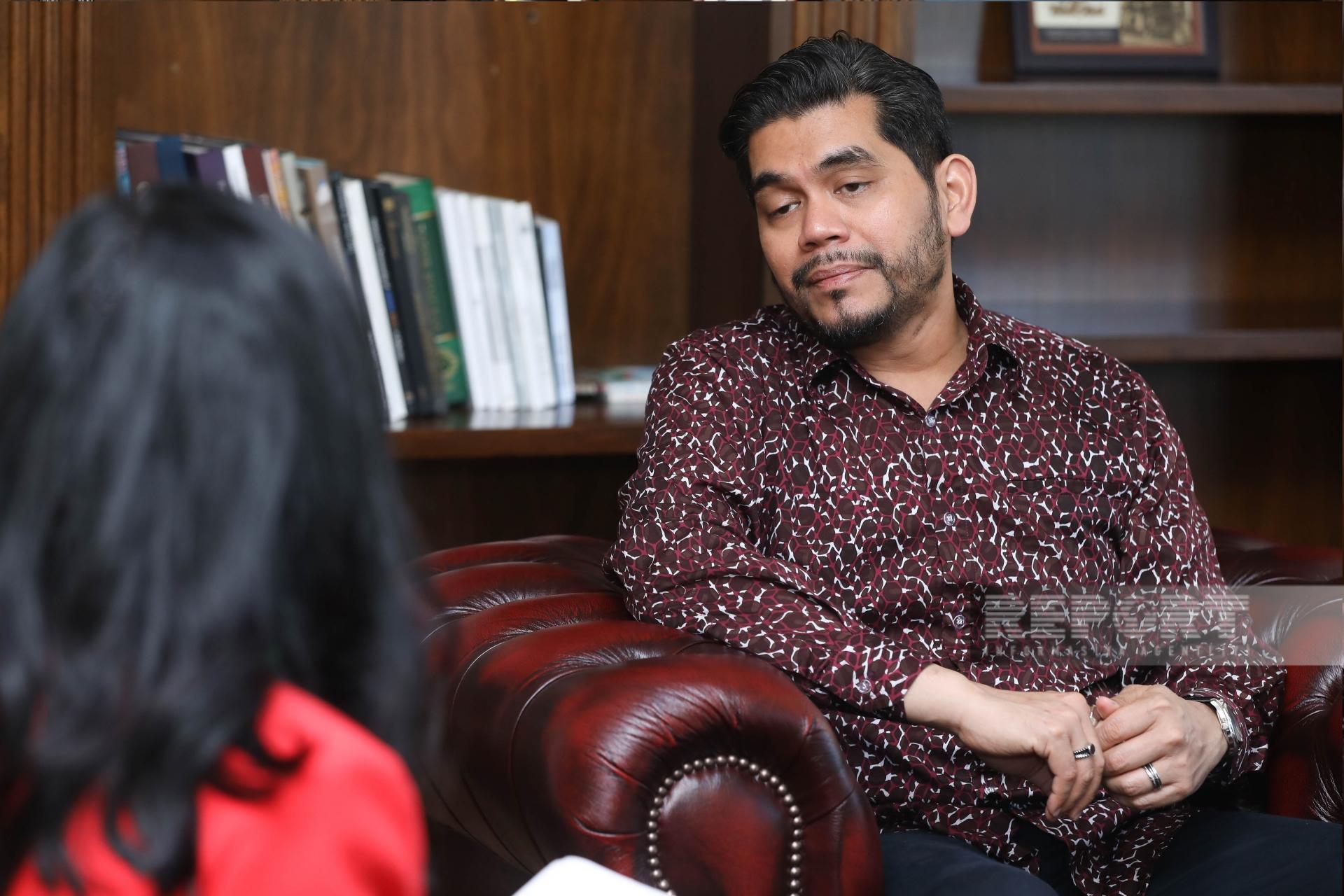
- I also wonder if it seems possible for Malaysian companies to participate in the restoration of the liberated territories of Azerbaijan? In general, have Malaysian companies been informed about these areas?
- Karabakh's region has attracted many foreign investors. This region could be attractive for Malaysian companies to invest. Interested Malaysian companies could discover new market opportunities, particularly the smart cities project in the Karabakh liberated region. Malaysia is always looking for potential involvement in all sectors of Azerbaijan, including restoration projects in liberated areas. Malaysian companies are interested in investing in Karabakh. President Ilham Aliyev's vision for the development process of liberated territories is remarkable because steps are being taken to transform these territories into futuristic and sustainable regions, and we look forward to the results of these great projects.
The Azerbaijani government has actively sought foreign direct investment, especially after the war ended. Political stability and the president's strong popularity have attracted more foreign investors in post-war reconstruction projects. Many friendly countries, like the UAE, Germany, Saudi Arabia, Romania, and Türkiye, have started investing in these projects. As I said before, now is the best time for Malaysian companies to explore new market opportunities, particularly in the smart cities project, leveraging our capabilities and expertise in niche areas, notably renewable energies, solar energy building materials, electrical and electronics, and other services such as Islamic banking and finance, as well as ICT digital platforms.
I will continue to encourage Malaysian companies to be involved in the dynamics of Azerbaijan's economy. This will be my main KPI. Many Malaysian companies are looking at the potential of business opportunities in Azerbaijan. If the conditions are conducive and there are available opportunities, we would like to welcome all possible and potential joint projects and collaborations in the future from both sides. The Azerbaijani Ambassador to Malaysia has also collaborated with relevant Malaysian stakeholders, such as agencies and business entities, to unlock the potential of the Malaysia-Azerbaijan economic partnership through seminars and forums to promote investment in the Karabakh region, particularly in renewable energy projects.
Malaysia is also interested in maintaining and establishing peace in the region. We can offer relevant training courses under the MTCP platform in areas of need in the liberated areas. For this reason, courses on capacity building, peace protection, restoration, and stability in the region can be held within the framework of MTCP.
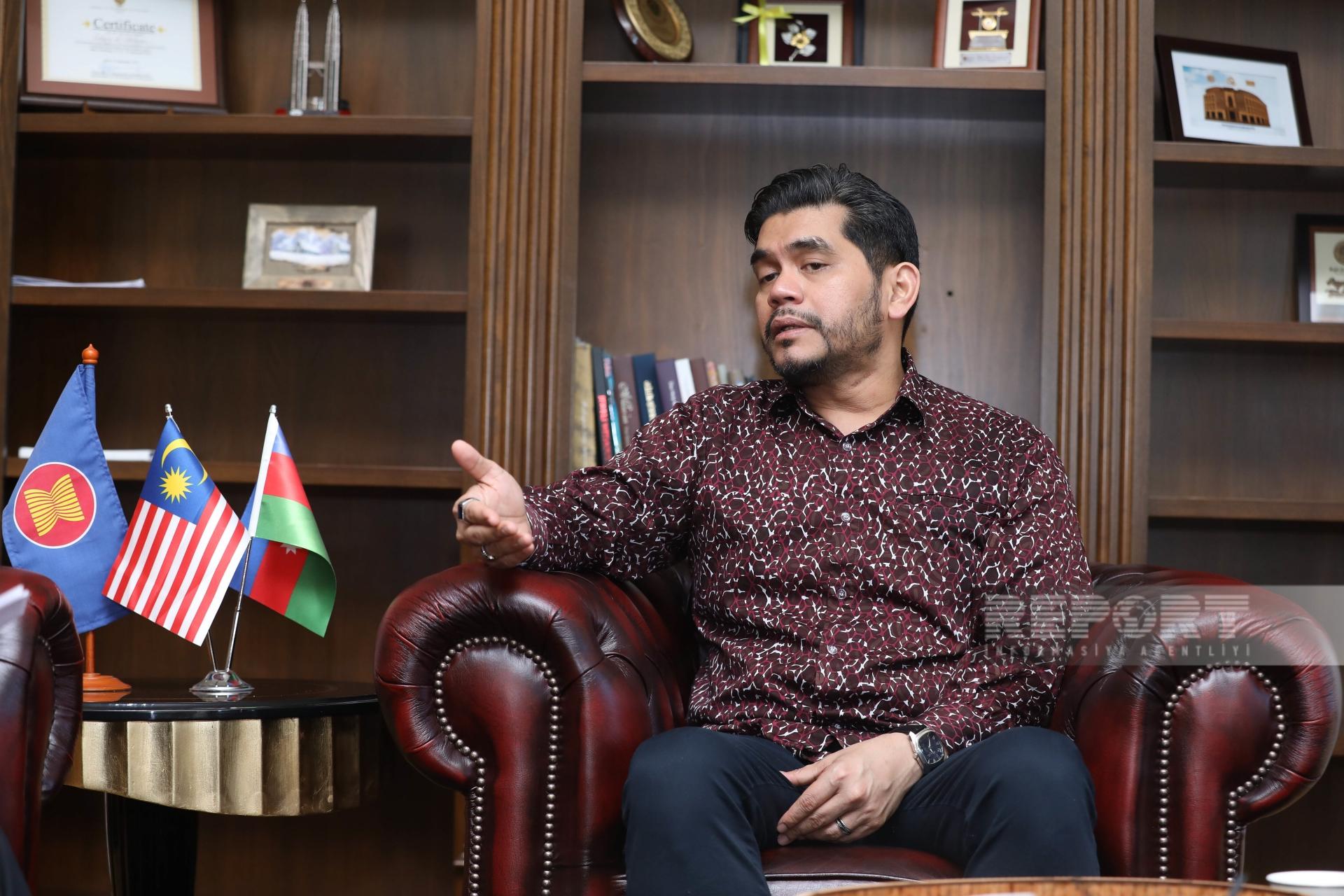
- As far as I know, one of the areas of cooperation between Azerbaijan and Malaysia is education. The second Malaysian education exhibition was held in Baku in December last year. What is the level of cooperation between Azerbaijan and Malaysia in the field of education, and what educational programs are available between the two countries?
- Education is one of the key priority areas that offers broad opportunities for cooperation between Malaysia and Azerbaijan. Malaysia is ready to cooperate in all kinds of fields of education. In recent years, Malaysia has fast become the hub for international education. To date, 100,381 international students from 179 countries are pursuing their studies in Malaysia. The government aims to increase the number of international students to 250,000 by 2025. All these indicate Malaysia's success in the field of education.
The Malaysian education exhibition, which entered its second edition last year, reflects the great importance of Azerbaijan as a potential country ready to be tapped. Compared to 2022, last December's education fair has attracted visitors with targeted interest and many questions. The exhibition has garnered promising prospects and serious interest in studying in Malaysia. This is a positive development. Our aim is to expose Malaysian universities while at the same time attracting Azerbaijani students to pursue their tertiary education in Malaysia. We believe we have achieved this and plan to do the third edition of this education fair on a bigger scale in November this year.
Several programs have been planned throughout the year to promote Malaysia's higher education in Azerbaijan. The universities also visited several schools in the Baku area to promote their programs. Exposing high school students to Malaysian education opportunities as early as possible gives them early exposure to the opportunities to continue their tertiary education. Malaysia can potentially be one of the preferred destinations for higher education among Azerbaijani students. Besides affordable tuition fees and a reasonably low cost of living, Malaysia shares cultural and religious similarities with Azerbaijan.
We are finalising the MoU on Cooperation in Higher Education with the Azerbaijani side. Once concluded, it will facilitate exchanges, mobility, and engagements among ministries, academic institutions, and experts and serve as a tool for Malaysia to become the world's education hub. Malaysia and Azerbaijan are working on strengthening mutual relations. In education, a few Azerbaijani and Malaysian universities have signed an MoU and are looking forward to the exchange of students, academicians, and experts. For many years now, a number of Azerbaijanis have received their quality education in Malaysia.
Azerbaijan offers scholarships abroad to more than its 4,000 students. Malaysia would be happy to welcome and receive those students to study in our country. We are pleased that students from Malaysia are also studying in Azerbaijan. Currently, two (2) Malaysian students are under the OIC/NAM scholarship from the Government of Azerbaijan, both majoring in psychology, and one is pursuing her Master's degree in Diplomacy and International Affairs under ADA's scholarship.
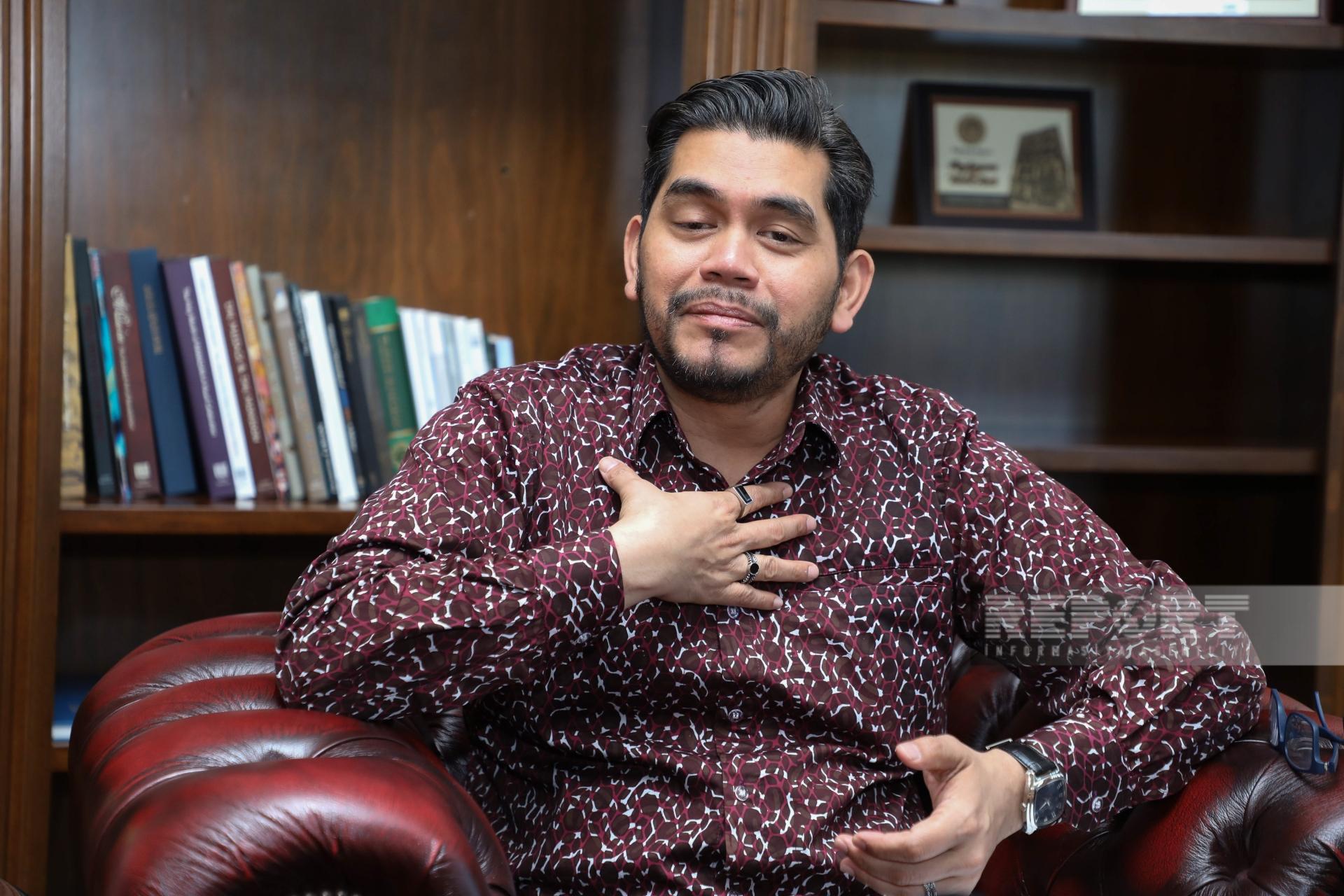
- Today, tourism is one of the areas of cooperation that the parties can benefit from. We would like to know at what stage are the negotiations towards the creation of combo tours with Malaysia, as well as the preparation of complex tour packages? How can Azerbaijan benefit from Malaysia's tourism experiences?
- People-to-people relations are very important to help our people learn more about each other's cultures. Mutual exchange programs and promotional activities, as well as various seminars and tourism sessions, can be carried out to update the tour companies. We partnered with Air Arabia, one of the major industry players. Since March last year, The Airline has resumed its direct flight to Kuala Lumpur from Sharja. As a result of joint cooperation between the Embassy, Tourism Malaysia Istanbul Office, and Air Arabia, a July 2023 familiarization trip to Malaysia with a group of famous Azerbaijani bloggers, influencers, and travel agents was organized.
Malaysia is one of the most touristic countries in the world. At least 25 million tourists visit the country annually. With the slogan "Truly Asia", Malaysia has long established its reputation as one of the best tourist destinations in the world. Azerbaijan can benefit from Malaysia's tourism experience and have a positive impact from it. Before the COVID-19 crisis, the tourism sector was one of the main contributors to the Malaysian economy, accounting for 15.9% of the country's GDP and about 24% of total employment in 2019. That year, Malaysia received 26.1 million tourists. It provided 21 billion dollars of tourism income and 3.6 million jobs.
Malaysia welcomes more tourists from Azerbaijan to visit Malaysia as it offers many beautiful and exciting places. We have many excellent yet affordable accommodations and facilities. Azerbaijanis enjoy free visas to enter Malaysia for 30 days. Moreover, Azerbaijan Manat is stronger than the Malaysian Ringgit, which is an advantage for Azerbaijani tourists travelling to Malaysia. Tourist data recorded an increase of around 50 per cent for inbound tourists from Malaysia to Azerbaijan, from 522 in 2021 (January-December) to 1060 over the same period in 2022. From January to July 2023, Malaysian tourist arrivals in Azerbaijan have already doubled to 1054 people. We are looking into finalising the bilateral agreement for a reciprocal arrangement of visa-free status for Malaysians entering Azerbaijan. Once signed, the MoU will pave the way for direct flights and increase tourist arrivals between the two countries.
- During the meeting, while presenting your letter of credence to President Ilham Aliyev, the issue of direct flights was mentioned. Are negotiations continuing regarding the opening of direct flights?
- Direct flights between Kuala Lumpur and Baku are not currently available. However, I strongly believe that the proposal to do so will benefit both countries. Enhanced connectivity is the most crucial aspect of economic development. It can improve the better and more efficient movement of goods and people between our countries. Enhancing connectivity could strengthen trade and economic cooperation through physical, institutional, and people-to-people linkages. There have been talks about a direct route for the Southeast Asia region. The Baku-KL-Baku sectors could benefit both Malaysia and Azerbaijan. It will facilitate people-to-people connectivity and promote Malaysia and Azerbaijan as top tourist destinations.
Azerbaijan has the potential to be the central hub for many industries. The country is located in a very strategic location, at the crossroads between Asia and Europe. Thus, if the direct flight initiative materialises, Baku could be a stop-over option for Malaysians on the Umrah or Hajj pilgrimage to the holy land. We will continue to engage with relevant institutions, including Azerbaijan Airlines and AirAsia or any interested airline companies, as well as the relevant ministry (Ministry of Transport), in resuming talks on a planned direct air route (KL-Baku-KL).
Tourism Malaysia is pursuing strategic collaborations with international airlines, aiming to stimulate increased travel demand from Central Asia, aligning with Malaysia's target of reaching 35.6 million tourists during Visit Malaysia Year 2026. From January to November 2023, Malaysia experienced a notable surge in tourism from Central Asia, welcoming 21,910 tourists, reflecting a remarkable 196.7% increase compared to 2022.
Concurrently, arrivals from Russia also soared, with Malaysia hosting 100,645 Russian visitors during the same period. This represents a staggering 360% surge from 2022 and a 39.5% increase compared to pre-pandemic levels in 2019.
- In this context, attention was also drawn to the establishment of an intergovernmental commission to expand Azerbaijan-Malaysia economic relations. What kind of work was done to establish this commission?
- We welcome and look forward to the proposal to establish a Joint Inter-Governmental Economic Commission to upgrade the current bilateral economic cooperation. Subsequent to that, I had a session with DFM Elnur Mammadov and counter-proposed a smaller scale of the Joint Intergovernmental Commission in the form of a business chamber/council. It could be formed as a precursor to the Joint Intergovernmental Commission. DFM Mammadov expressed his optimism about this proposal. Under this Business Council, the national chambers, trade-related agencies, and private sectors will work together to promote the economic interests of both countries. We are working closely with our Azerbaijani counterparts and relevant Malaysian agencies, including MITI and our national chamber of commerce, to discuss the implementation mechanism. Once materialised, we envision a working group to review and discuss bilateral economic opportunities and expand ties in various fields, such as agriculture and the food industry, communications, green energy, and information technology.
- Are mutual visits of officials from the two countries expected soon?
- During my audience with the President, we also stressed that more high-level visits are needed among ministers, government officials, and business circles to increase people-to-people ties. Therefore, it is imperative to have constant contacts and exchanges of visits, including high-level officials. We are actively engaging both sides regarding the possibility of FM Jeyhun Bayramov undertaking his visit to Malaysia this year. This is to reciprocate a visit by our former Foreign Minister to Baku last year, attending the NAM Ministerial Meeting in July. It would serve as a platform to finalise some pending MoUs, particularly bilateral consultations, a MoU on higher education, and a free entry visa that could be signed during FM Jeyhun Bayramov's visit. Regarding the Joint Bilateral Consultations, the last meeting was held in July 2022, when DFM Mammadov visited Malaysia. It would be our turn next, and we are planning for the meeting to be held this year.
Parliamentary diplomacy is also essential. The parliaments of Malaysia and Azerbaijan have been active, and parliamentarians and speakers of both countries have been exchanging visits since 2012. This active and close relationship should continue in the future to deepen the bond for the mutual benefit of the two countries. We need to increase people-to-people engagement to engage the Azerbaijani people further.


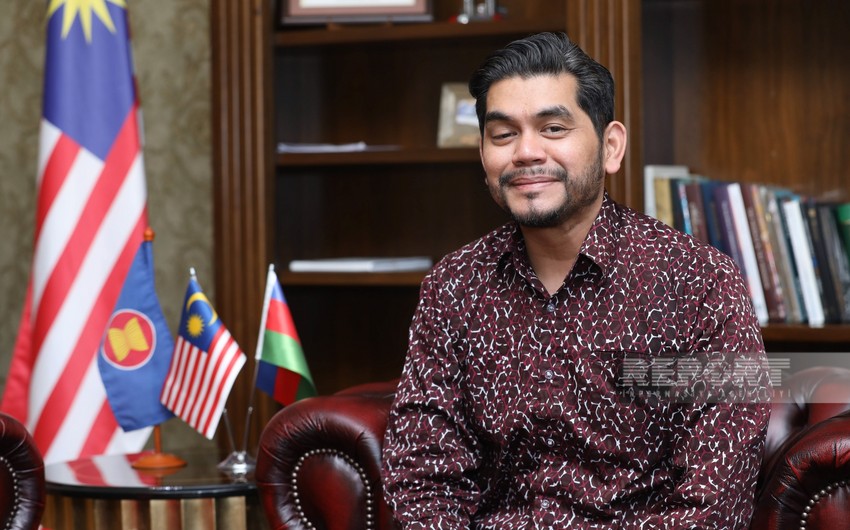 https://static.report.az/photo/bb2a9591-dcd0-31e1-b3f3-2673f011eb30.jpg
https://static.report.az/photo/bb2a9591-dcd0-31e1-b3f3-2673f011eb30.jpg

